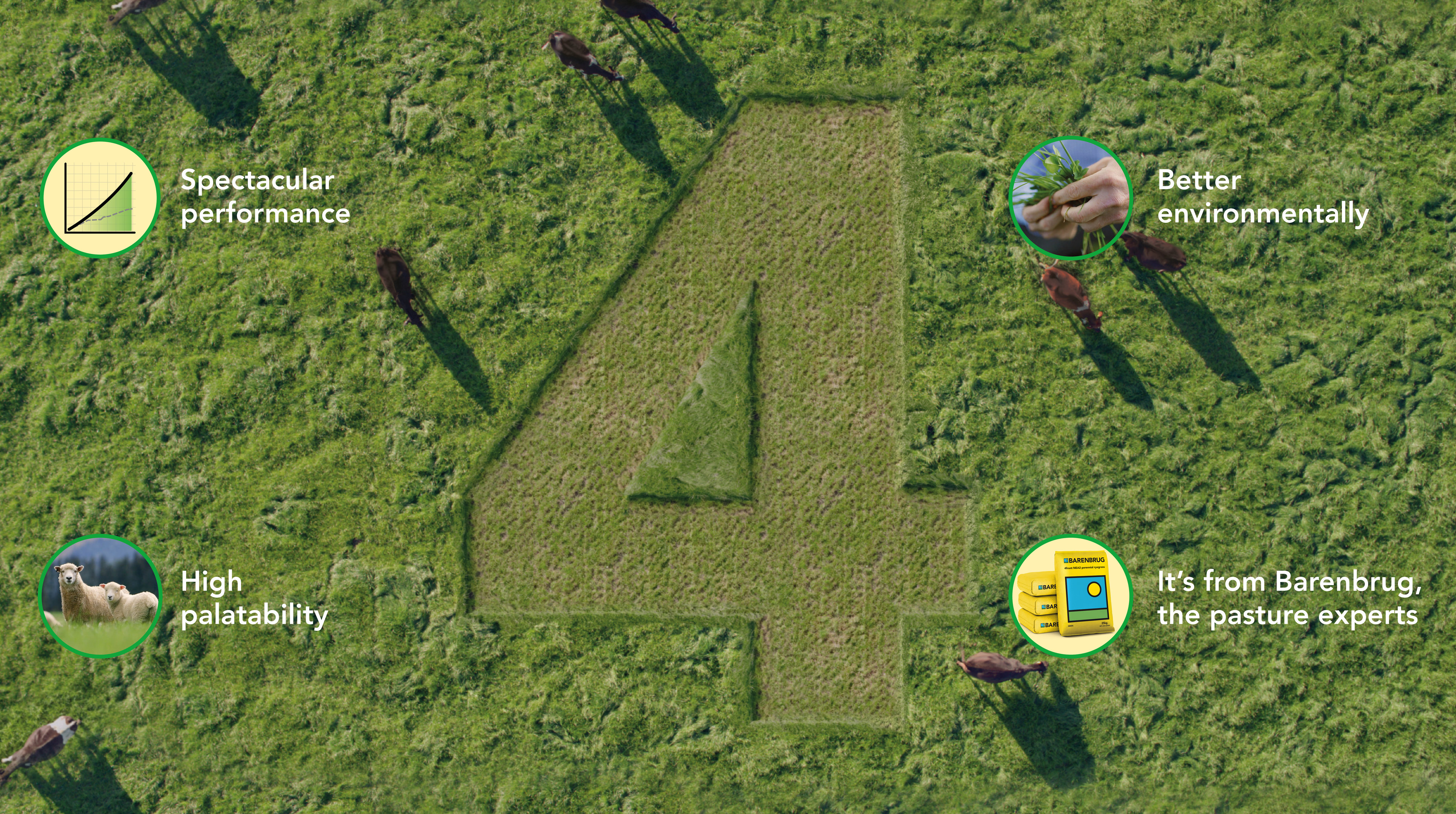Stock-friendly grass to the fore
Agriculture is changing fast, but 4front, our new tetraploid perennial ryegrass, will help you stay one step ahead, and your animals will benefit, too.
Palatable and high yielding, 4front grazes well; encourages increased intakes for higher per head performance and perhaps most importantly, can improve environmental outcomes.
Tetraploids are fantastic nutrition for grazing animals, because they are so palatable and easy to eat, with more ME per mouthful than diploid ryegrass.
The average lactating dairy cow takes about 25,000 bites of pasture each day, while a ewe might take 35,000 bites. That’s a lot of work!
4front makes it easier for animals to take each bite, reducing the amount of effort required for grazing, so improving their daily lives.
As well as being more palatable than diploid perennial ryegrass, tetraploids are also proving very valuable for producing milk and meat from fewer stock.
This is the way we have to start thinking for future New Zealand farming.
Following the Climate Change Commission’s recommendations for reducing GHG emissions in NZ, tetraploids like 4front have much to offer farmers in adapting their systems.
Lincoln University Dairy Farm is a dramatic example of what can be achieved here.
It has reduced cow numbers, cut N fertiliser applications, and sharply limited N leaching and GHG, but has similar profitability.
It’s done this by becoming more efficient, growing more pasture for the same N, and producing more milk per cow, coupled with significant cost savings.
A key element of LUDF’s successful change is use of tetraploid ryegrass, which has now been sown in all but one paddock, because it remains palatable at higher covers.
This doesn’t sound much, but it means more photosynthesis, so the farm is growing over 1.2 t DM/ha/year more - with just this one change!
With the highest DM yield of any tetraploid we’ve bred previously, 4front answers the need for reliable year-round growth.
Its cool season growth also has the advantage of utilising soil N at the riskiest time of the year for N leaching. And it has more tillers than other tetraploids, for improved persistence.
4front is legume friendly and can be sown with Captain CS plantain to further reduce the risk of N leaching.
Download The 4front system from our website to find out how you can harness the benefits of tetraploids on your own farm.


